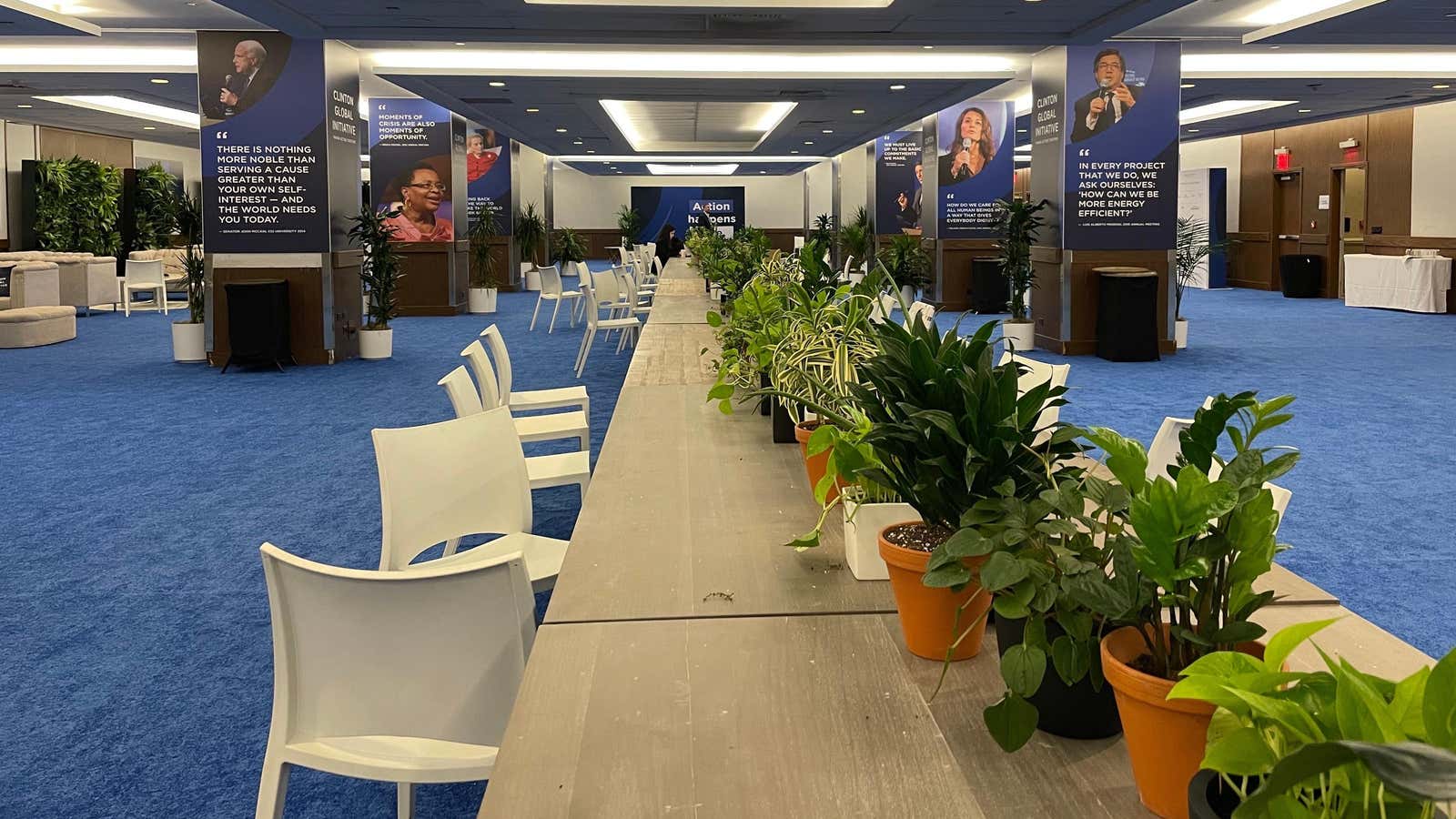After two years of setbacks due to covid, the international development community is back in person in New York for the United Nations General Assembly. The issues are the usual, if made more urgent by the loss of lives and resources during the pandemic. Poverty, inequality, and climate change all are being discussed in panels and addresses, with the typical calls to move from words to actions, to think of innovative solutions, to strengthen partnerships.
But the tool to address most of the world’s challenges is not innovative, nor complicated, noted economic Nobel laureate Abhijit Banerjee during a session of the Clinton Global Initiative, the two-day conference organized by the foundation started by former US president Bill Clinton to tackle global development issues.
Asked what is needed to solve the world’s most pressing challenges, Banerjee simply said, “I think money. Everything else is second order.”
To reduce poverty, give people money
Money transfers, said Banerjee, are proven to be the most effective solution for poverty alleviation.
“We don’t need to be so sophisticated, we don’t need to worry so much about incentives, but be good with actually giving people some money and letting them live a better life,” he said.
The idea, logical as it may be, is a radical departure from anti-poverty theories of the past, which relied on the belief that people living in poverty should not be trusted to spend money wisely. That belief is no longer as widely held as it once was, however. “Even the world’s poorest people are perfectly capable of living a productive life,” said Banerjee, who shared in the 2019 Nobel prize in economics for developing an experimental approach to alleviating poverty.
Poor countries, rich counties
There is enough money in the world for the poorest countries to rise to decent standards of living, if only the rich world were willing to share it. The same dynamic holds when the standards in question involve living with climate change. The way to mitigate its impact, and compensate those who are already affected by it, Banerjee argued, is money, and a lot of it—“in orders of magnitude bigger than anything we are talking about,” Banerjee said.
The World Trade Organization’s director-general, Ngozi Okonjo-Iweala, who was on the same panel, added that what’s needed along with money is solidarity. As the pandemic showed, resources do nothing without the desire to share them.
Hearing them speak to an audience of lanyard-wearing conference goers in the air-conditioned Hilton Hotel in midtown Manhattan, at a conference that is the embodiment of the well-meaning development industrial complex, it’s hard not to see their point.
